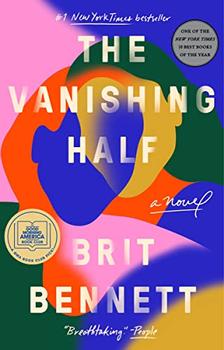Summary | Excerpt | Reading Guide | Reviews | Beyond the Book | Readalikes | Genres & Themes | Author Bio

A Novel
by Brit Bennett
The idea hadn't been Stella's at all-during that final summer, it was Desiree who'd decided to run away after the picnic. Which should not have been surprising, perhaps. Hadn't she, for years, told anyone who would listen that she couldn't wait to leave Mallard? Mostly she'd told Stella, who indulged her with the patience of a girl long used to hearing delusions. To Stella, leaving Mallard seemed as fantastical as flying to China. Technically possible, but that didn't mean that she could ever imagine herself doing it. But Desiree had always fantasized about life outside of this little farm town. When the twins saw Roman Holiday at the nickel theater in Opelousas, she'd barely been able to hear the dialogue over the other colored kids in the balcony, rowdy and bored, tossing popcorn at the white people sitting below. But she'd pressed against the railing, transfixed, imagining herself gliding above the clouds to some far-off place like Paris or Rome. She'd never even been to New Orleans, only two hours away.
"Only thing waitin for you out there is wildness," her mother always said, which of course, only made Desiree want to go even more. The twins knew a girl named Farrah Thibodeaux who, a year ago, had fled to the city and it sounded so simple. How hard could leaving be if Farrah, one year older than they, had done it? Desiree imagined herself escaping into the city and becoming an actress. She'd only starred in one play in her life-Romeo and Juliet in ninth grade-but when she'd taken center stage, she'd felt, for a second, that maybe Mallard wasn't the dullest town in America. Her classmates cheering for her, Stella receding into the darkness of the gym, Desiree feeling like only herself for once, not a twin, not one half of an incomplete pair. But the next year, she'd lost the role of Viola in Twelfth Night to the mayor's daughter, after her father had made a last-second donation to the school, and after an evening sulking in the stage wing as Mary Lou Fontenot beamed and waved to the crowd, she told her sister that she could not wait to leave Mallard.
"You always say that," Stella said.
"Because it's always true."
But it wasn't, not really. She didn't hate Mallard as much as she felt trapped by its smallness. She'd trampled the same dirt roads her entire life; she'd carved her initials on the bottom of school desks that her mother had once used, and that her children would someday, feeling her jagged scratching with their fingers. And the school was in the same building it'd always been, all the grades together, so that even moving up to Mallard High hadn't felt like a progression at all, just a step across the hallway. Maybe she would have been able to endure all this if it weren't for everyone's obsession with lightness. Syl Guillory and Jack Richard arguing in the barber shop about whose wife was fairer, or her mother yelling after her to always wear a hat, or people believing ridiculous things, like drinking coffee or eating chocolate while pregnant might turn a baby dark. Her father had been so light that, on a cold morning, she could turn his arm over to see the blue of his veins. But none of that mattered when the white men came for him, so how could she care about lightness after that?
She barely remembered him now; it scared her a little. Life before he died seemed like only a story she'd been told. A time when her mother hadn't risen at dawn to ride buses clean to white people's houses or taken in extra washing on the weekends, clotheslines zigzagging across their living room. The twins used to love hiding behind the quilts and sheets before Desiree realized how humiliating it was, your home always filled with strangers' dirty things.
"If it was true, then you'd do something about it," Stella said.
She was always so practical. On Sunday nights, Stella ironed her clothes for the entire week, unlike Desiree, who rushed around each morning to find a clean dress and finish the homework crushed in the bottom of her book bag. Stella liked school. She'd earned top marks in arithmetic since kindergarten, and during her sophomore year, Mrs. Belton even allowed her to teach a few classes to the younger grades. She'd given Stella a worn calculus textbook from her own Spelman days, and for weeks, Stella lay in bed trying to decipher the odd shapes and long strings of numbers nestled in parentheses. Once, Desiree flipped through the book, but the equations spanned like an ancient language and Stella snatched the book back, as if by looking at it, Desiree had sullied it somehow.
Excerpted from The Vanishing Half by Brit Bennett. Copyright © 2020 by Brit Bennett. All rights reserved. No part of this excerpt may be reproduced or reprinted without permission in writing from the publisher.
A few books well chosen, and well made use of, will be more profitable than a great confused Alexandrian library.
Click Here to find out who said this, as well as discovering other famous literary quotes!
Your guide toexceptional books
BookBrowse seeks out and recommends the best in contemporary fiction and nonfiction—books that not only engage and entertain but also deepen our understanding of ourselves and the world around us.